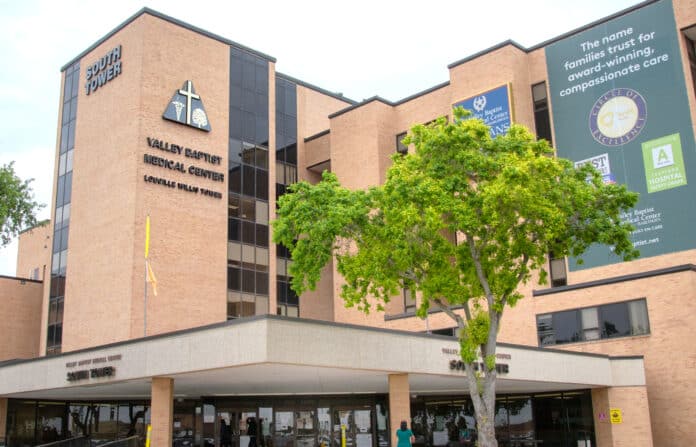
|
Only have a minute? Listen instead
Getting your Trinity Audio player ready...
|
HARLINGEN — A flash and a memory.
A shout and erratic breathing.
A smell, a taste, a man’s cough, his cologne or his tone of voice or a woman screaming.
Shouts and flashes and the smell of cologne are by themselves innocent moments and are part of the routines of daily life. To survivors with Post Traumatic Stress Disorder they are the unsettling flash backs of dark remembrances.
A flash becomes an explosion of artillery, a shout is a man raging his insults, and a woman’s voice can be the screeching of an unhinged addict terrorizing a child. These flashbacks can trigger reactions that will harm the sufferer’s social, professional, and personal life.
June is PTSD Awareness Month, and mental health professionals everywhere are using this month to highlight an affliction which bombards sufferers throughout the year.
“If PTSD is left untreated, it may lead to significant anxiety, depression, worsening medical conditions and it can increase the risk of suicide among other concerns,” says Anthony Manuel, psychiatric mental health nurse practitioner for Valley Baptist Medical Center.
“The types of PTSD cases a provider sees depends on location of work,” Manuel said. “Those that work in Veterans Affairs will see more PTSD cases that are combat-related, and a child psychiatrist will see more PTSD cases related to abuse.”
Many experiences can trigger PTSD reactions which, if not addressed, will continue throughout the sufferer’s life. Sexual assault can create dark memories that will send a survivor into a panic while shopping in a grocery store or going to a movie theater or walking through a parking garage. Child abuse of any kind can follow the survivor throughout life and affect friendships, intimacy, academic performance and job productivity.
Traffic accidents, house fires, hurricanes and domestic abuse can impact an individual’s future.
Military veterans have their own set of PTSD conditions, said Dr. Pamela Smith, psychologist and local recovery coordinator for the Veterans Administration here.
Smith made reference to the National Center for PTSD which says that veterans are more likely to develop PTSD than civilian members of the public.
“Veterans who are deployed to combat zones and serve in combat are more likely to develop PTSD than those who do not,” Smith said. “The conditions and requirements of combat expose our service members to unimaginable destruction, suffering, and death. This exposure can lead to deep feelings of guilt, moral injury (for example loss off faith), and thoughts of suicide.”
PTSD is a life-long condition, but there are ways of treating PTSD and managing symptoms and triggers in order to reduce the impact of trauma on the sufferers life, Manuel said.
“Treating individuals with PTSD is a process that takes time, starting first with assessing the patient’s insight to the diagnosis,” Manuel said. “Many times, patients will not be aware that they are suffering PTSD; thus, the diagnosis, trigger (s), and symptoms are thoroughly discussed.”
Once the patient is made aware of his diagnosis, Manuel said he determines if medication is immediately needed because the individual is actively experiencing significant anxiety, agitation, or nightmares. After addressing the matter of medication, decisions are made about long-term treatment.
“Following up with a psychiatrist and therapist, in addition to a general practitioner, is important because they are trained in identification and treatment of PTSD which does require specific medications and therapy such as trauma-focus therapy,” Manuel said. “Finding the psychiatrist and trauma-certified psychologist that is right for you may be difficult, and thus a list of possible providers and resources to aid with search are given to all patients.”
The VA has a broad range of therapies available to veterans, Smith said.
“VA Texas Valley Coastal Bend offers Veterans state-of-the art psychotherapies for PTSD, MST, depression, substance abuse, as well as psychotherapies that target specific issues such as sleep, chronic pain, and marital/partner distress and family issues,” Smith said. “’State-of-the-art’ here means that VA nationally and locally invests in identifying and training its mental health clinicians in providing therapies that have been proven by research to be effective in reducing veterans’ symptoms and improving their quality of life.”
MST stands for Military Sexual Trauma and is a significant problem among female veterans.
“Female Veterans are more likely than male veterans to experience PTSD,” Smith said. “Thirteen percent of female veterans will experience PTSD in their lifetime compared to 6% of male veterans according to data from the National Center for PTSD. The prevalence of Military-Sexual Trauma (MST) affects a very high percentage of female veterans. MST is not a diagnosis but a specific form of trauma that results from rape or sexual assault.”
Some male veterans are also classified as MST, she said.
In the broad spectrum of trauma, distress, and PTSD, one thing is clear: do not suffer in silence.
All mental health professionals insist on the importance of telling someone about their struggles. Talk to a friend, a relative, and a professional.
Speaking early about these issues can avoid a lifetime of broken relationships, lost income and isolation.



